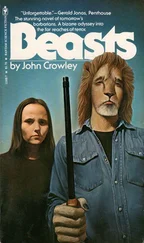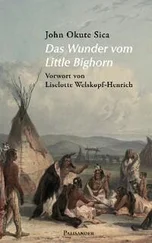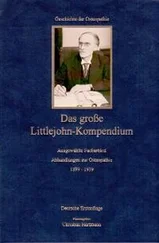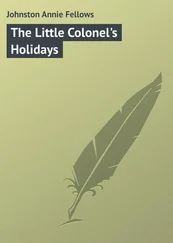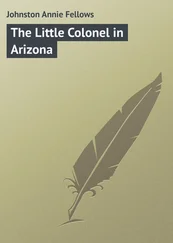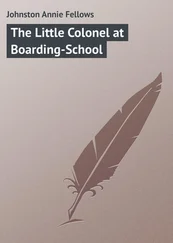“It’s not a matter of that,” Smoky said. Since he had eaten the hot-star bun, emotions seemed to sweep him alternately like swift changes of season. Autumnal tears rose to his eyes. “It doesn’t matter anyway. I couldn’t take the gift. You see”—this was difficult to explain—“when she was young she believed in fairies. The whole family did. I never did. I think they still do. Now that’s crazy. How could I believe in that? I wanted to—that is, I wanted to have believed in them, and seen therh, but if I never did—if the thought never occurred to me—how can I take her gift?”
Mr. Woods was shaking his head rapidly. “No, no,” he said. “It’s a perfectly fine gift.” He shrugged. “But you have no bag to put it in is all. See here! We’ll give you gifts. Real ones. No holding back on essential parts.” He flung open a humpbacked chest bound with black iron. It seemed to glow within. “See!” he said, drawing out a long snake of a necklace. “Gold!” The others there looked at Smoky, smiling in approval of this gift, and waiting for Smoky’s amazed gratitude.
“It’s… very kind,” Smoky said. Mr. Woods draped the glowing coils around Smoky’s neck, once, again, as though he meant to strangle him. The gold was not cold as metal should be but warm as flesh. It seemed to weight his neck, so heavy it was, to bend his back.
“What more?” Mr. Woods said, looking around him, finger to his lips. Mrs. Underhill with one of her needles pointed to a round leather box on top of the cupboard. “Right!” Mr. Woods said. “How about this?” He fingered the box from its high place till it fell into his arms. He popped open the lid. “A hat!”
It was a red hat, high-crowned and soft, belted with a plaited belt in which a white owl’s feather nodded. Mr. Woods and Mrs. Underhill said Aaaaah, and watched closely as Mr. Woods fitted it to Smoky’s head. It was as heavy as a crown. “I wonder,” Smoky said, “what became of Daily Alice.”
“Which reminds me,” Mr. Woods said with a smile, “last but not least but best…” From under the bed he drew out a faded and mouse-chewed Gladstone carpetbag. He brought it to the table and placed it tenderly before Smoky. A sadness seemed to have entered him too. His great hands stroked the bag as though it were beloved. “Smoky Barnable,” he said. “This is in my gift. She couldn’t give it, no matter that she wanted to. It’s old but all the more capacious for that. I bet there’s room in it for…” A doubt came over him, and he snapped open the crossbones catch of the bag and looked inside. He grinned. “Ah, plenty of room. Not only for her gift, but pockets too for your unbelief, and whatever else. It’ll come in handy.”
The empty bag was heaviest of all.
“That’s all,” said Mrs. Underhill, and the grandfather clock struck sweetly.
“Time you were going,” said Mrs. Woods, and the baby choked impatiently.
“What’s become of Alice?” Mr. Woods said thoughtfully. He turned twice around the room, looking out the small deep windows and peering into corners. He opened a door; beyond it Smoky glimpsed utter darkness and heard a long, sleepy whisper before Mr. Woods closed it quickly. He lifted his finger and his eyebrows went up with a sudden idea. He went to the tall wardrobe that stood on claw feet in the corner; he threw open its doors, and Smoky saw the wet woods he had come through with Alice—and, far off, loitering in the afternoon, Alice herself. He was shown into the wardrobe.
“It was very nice of you,” he said, stooping to enter. “Giving me all this stuff.”
“Forget it,” said Mr. Woods, his voice sounding distant and vague. The wardrobe doors shut on him with a long noise like a far great low-voiced bell. He walked through the wet underbrush, slapped at by branches, his nose starting to run.
“What on earth,” Daily Alice said when she saw him.
“I’ve been in the Woods’,” he said.
“I guess you have. Look at you.”
A thick tangle of creeper had Somehow got twined around his neck; its tenacious prickles tore his flesh and plucked at his shirt. “Damn,” he said. She laughed, and began to pull leaves from his hair.
“Did you fall? How did you get dead leaves all in your hair? What’s that you’ve got?”
“A bag,” he said. “It’s all right now.” He raised to show her the long-dead hornet’s nest he carried; its fine paper-work was broken in places and showed the tunneled interior. A ladybug crawled from it like a spot of blood and flew away.
“Fly away home,” Daily Alice said. “It’s all right now. The path was there all the time. Come on.”
The great weight he felt was his pack, sodden with rain. He wanted desperately to put it down. He followed her along a rutted trail, and soon they came to a great littered clearing below a crumbling bank of clay. In the midst of the clearing was a brown shack with a tarpaper roof, tied to the woods by a dripping clothesline. A pickup truck sat wheelless on concrete blocks in the yard, and a black-andwhite cat prowled, looking damp and furious. A woman in apron and galoshes was waving to them from the wire-bound chicken house.
“The Woods,” Daily Alice said.
“Yes.”
And yet, even when they had coffee in front of them, and Amy and Chris Woods were talking of this and that, and his discarded pack lay puddling the linoleum, still Smoky felt press on him a weight given him, which he could not shake off, and which gradually came to seem as if it had always been there. He thought he could carry it.
Of the rest of that day, and the rest of their adventures on that journey, Smoky later on would remember very little. Daily Alice would remind him later of this or that, in the middle of a silence, as though she rehearsed that journey often when her mind had nothing else to do, and he’d say, “Oh yes,” and perhaps really remember what she spoke of and perhaps not.
On that same day Cloud on the porch by the glass table, thinking only to complete her pursuit of those same adventures, turned up a trump called the Secret, and when she prepared to put it in its place gasped, began to tremble; her eyes filled with sudden tears, and when Mother came to call her for lunch, Cloud, red-eyed and still surprised that she had not known or suspected, told her without hesitation or doubt what she had learned. And so when Smoky and Daily Alice returned, brown, scratched and happy, they found the blinds drawn in the front windows (Smoky didn’t know this old custom) and Doctor Drinkwater solemn on the porch. “Auberon is dead,” he said.
Rooks (Smoky supposed) fled home across a cloudstreaked chilly sky toward naked trees which gestured beyond the newly-turned furrows of a March field (he was quite sure it was March). A split-rail fence, nicely cracked and knotholed, separated the field from the road, where a Traveler walked, looking a bit like Dante in Doré, with a peaked hood. At his feet were a row of white, red-capped mushrooms, and the Traveler’s face had a look of alarm—well, surprise—because the last small mushroom in the row had tilted up its red hat and was looking at him with a sly smile from beneath the brim.
“It’s an original,” Doctor Drinkwater said, indicating the picture with his sherry glass. “Given to my grandmother Violet by the artist. He was an admirer of hers.”
Because his childhood books had been Caesar and Ovid, Smoky had never seen the man’s work before, his pollarded, faced trees and evening exactness; he was struck by it in ways he couldn’t analyze. It was called By the Way , like a whisper in his ear. He sipped his sherry. The doorbell (it was the kind where you turn a key to make the noise, but what a noise) rang, and he saw Mother hurry by the parlor door, wiping her hands on her apron.
Читать дальше

